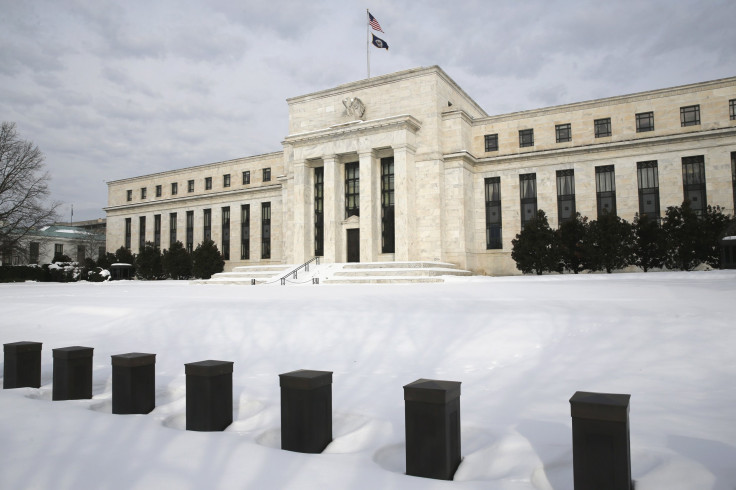Asian Stocks Fall After Apple Slumps, Fed Leaves Interest-Rate Expectations Little Changed

Japanese and South Korean shares fell on Thursday morning after the U.S. Federal Reserve left its interest-rate plans unchanged and Apple dragged the Nasdaq Composite more than 2 percent.
Japan's Nikkei 225 and South Korea's KOSPI both fell 0.7 percent. Smaller markets, like Singapore's STI and Australia's ASX 200, were little changed.
In the U.S., Nasdaq fell 2.2 percent as Apple slumped 6.6 percent, dragged by the weakest growth in iPhone sales since the phone was launched in 2007. The Dow Jones Industrial Average and Standard & Poor's 500 both declined more than 1 percent.
The U.S. Federal Reserve noted a slowdown in economic growth late last year — the official GDP report is due on Friday — and said it is monitoring global financial developments while maintaining it will still raise interest rates gradually. Some investors were disappointed the Fed didn't say more to calm financial markets that have slumped this year as oil fell below $30 a barrel, hurting oil producers and the many industries that supply them.
"It sounds like they are unimpressed with what has happened in the markets, that it has been insufficient to change their plans. That's the takeaway and it's why the market is going down," said Stephen Massocca, the chief investment officer of Wedbush Equity Management LLC in San Francisco, as reported by Reuters.
One analyst said investors who are less concerned about interest rates grew more anxious about the global economy due to the Fed's stated concerns.
“Investors and traders responded to a perception of deeper concern about the international outlook from the Fed,” Michael McCarthy, the chief market strategist in Sydney at CMC Markets, said in an e-mail to clients, as reported by Bloomberg. “The market reaction suggests investors are not concerned about rising rates. Rather, the Fed’s apparently heightened concerns confirmed fears of a deteriorating global outlook, pushing investors to sell.”
Oil rose after Russia hinted it might help boost prices, according to Reuters. Brent, the global benchmark, climbed more than 4 percent to $33.10 per barrel. The U.S. benchmark rose 2.7 percent to $32.30 per barrel. They are trading at 12-year lows, having come from over $100 per barrel in mid 2014 and $40 in December.
© Copyright IBTimes 2024. All rights reserved.





















